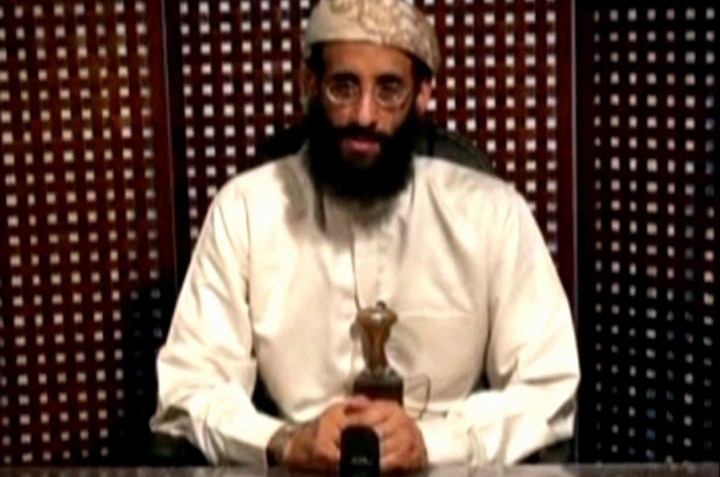Politics
As drones terminate al-Qaeda’s Al-Awlaki, a debate on extrajudicial killings rages in the US

American citizen, Anwar Al-Awlaki was assassinated in a drone strike in Yemen on Friday. The United States government had labelled Al-Awlaki a radical cleric and had placed him on a targeted-killing list. Al-Awlaki is believed to have been at the helm of al-Qaeda operations in the Arabian Peninsula. While the Obama administration is being feted for dealing a fatal blow against the terrorist organisation, the killing has dredged up tired concerns about extrajudicial killings in the name of fighting terrorism. By KHADIJA PATEL.
Anwar Al-Awlaki was alleged to have been a moderate who turned radical, a cleric who drummed the call to arms against the much-reviled Americans. Yet, Al-Awlaki was himself an American citizen. He was born in 1971 in New Mexico where his father was studying agricultural economics. He lived in the US until the age of seven, and then returned with his family to Yemen. After pursuing Islamic studies as a teenager, he returned to the US to read for a civil engineering degree from Colorado State University and later, a master’s in education at San Diego State. It was religious leadership, however, that earned him a substantial following in the United States. After the September 11 terror attacks, Al-Awlaki was interviewed several times about his ties with three of the hijackers – he had met at least two of them, Khalid al-Midhar and Nawaf al-Hazmi, at a San Diego mosque in 2000. The “September 11 Commission” report further revealed that Al-Awlaki was investigated by the FBI in 1999 and 2000. None of the investigations led to criminal charges against him and Al-Awlaki was actually invited to the Pentagon in 2001 as part of the American military’s outreach program to the Muslim community. In 2004, however, as Al-Awlaki began to grow increasingly hostile to the US, he returned to his ancestral home in Yemen.
Al-Awlaki was billed by GQ magazine as “the next Bin Laden” but he never quite succeeded in surpassing the threat of Bin Laden in the conscience of the American public. Successive American governments though have grown increasingly wary of him. Al-Awlaki was fingered as the brain behind a number of terror plots.
In August 2006, Al-Awlaki was detained by the Yemeni authorities, reportedly on charges relating to a plot to kidnap a US military attache. He claimed to have been interviewed by FBI agents during his subsequent 18 months in prison, and believed the US had asked the Yemeni authorities to prolong his detention. Following an intercession by his tribe, Al-Awlaki was released by Yemeni authorities, only for his repertoire for terror to escalate. He was directly linked to two terror attacks on the US in 2009. Email exchanges between Al-Awlaki and the accused Fort Hood shooter gunman, Nidal Hasan, confirmed that it was Al-Awlaki in his position as an al-Qaeda leader who was the inspiration for the massacre at a Texas army base that left 13 people dead.
In a May 2010 video, Al-Awlaki described the Fort Hood shooting as a “heroic and wonderful act”. Just one month before the release of that video, the Obama administration had placed al-Awlaki on the CIA’s target list. His was the dubious honour of being the first American on the target list. Compounding the American government’s stand against Al-Awlaki, the US treasury department named Awlaki as “specially designated global terrorist” and blocked his assets. It became a crime for Americans to do business with him. Civil rights groups condemned the US government for targeting an American citizen without due processes. Al-Awlaki’s family was similarly outraged, but their plans to launch legal action against the US military was scuppered by the US Treasury which refused to allow the family to raise funds for the legal action as it would ultimately benefit Al-Awlaki.
Al-Awlaki, meanwhile, proved elusive. He escaped several assassination attempts by the US unmanned drone campaign and the Yemeni army. His luck ran out last Friday. According to the Sunday Telegraph, Al-Awlaki met his end, “as he and his comrades chewed dates and drank traditional Yemeni tea”. The drone had found its mark this time.
Al-Awlaki’s death is described to be a huge blow against al-Qaeda operations in the Arabian Peninsula. The terror organisation has suffered the loss of several key members this year. US President Barack Obama has emerged triumphant.
Civil rights activists, however, have been enraged. They argue that Al-Awlaki, as an American citizen, was entitled to a fair trial before being summarily assassinated. No less than presidential hopeful Ron Paul launched a bitter diatribe against Obama for the killing. Writing in the New York Daily News, the outspoken Republican politician said Obama was acting outside “the Constitution or the rule of law” when he ordered Friday’s drone strike on Al-Awlaki. “Awlaki was a US citizen. Under our Constitution, American citizens, even those living abroad, must be charged with a crime before being sentenced,” he wrote.
The Council on American-Islamic Relations (CAIR) has also raised concerns about the way in which Al-Awlaki was pursued. “The American Muslim community firmly repudiated Anwar al-Awlaki’s incitement to violence, which occurred after he left the United States. While a voice of hate has been eliminated, we urge our nation’s leaders to address the constitutional issues raised by the assassination of American citizens without due process of law,” CAIR said in a statement on Friday. Writing in The New York Times on Sunday, prominent American Muslim cleric Yasir Qadhi said, “The accusations against him were very serious, but as a citizen, he deserved a fair trial and the chance to face his accusers in a court of law. Whether he deserved any punishment for his speech was a decision that a jury should have made, not the executive branch of our government. The killing of this American citizen is not only unconstitutional, but hypocritical and counterproductive.”
In South Africa, where Al-Awlaki has enjoyed some measure of popularity for his eloquent narrations of Islamic history on the internet as well as community radio, many Muslims refuse to comment on Al-Awlaki’s death for fear of being marked as terrorist supporters. Some South African Muslims remain doubtful about Al-Awlaki’s reputation as a terrorist, claiming that there has been no evidence to demonstrate Al-Awlaki’s actual participation in terror plots against his countrymen.
US government officials continue to insist that Al-Awlaki played a significant operational role in a number of terrorist plots against the United States and called for violence against American men, women and children. Under pressure from civil rights activists to reveal its proof of Al-Awlaki’s role in terror plots, the US government has indicated that it will not present its evidence against Al-Awlaki in public. The debate about the legality of his killing is however set to rage on for some time yet. DM
Read more:
- Anwar al-Awlaki: al-Qaeda mouthpice who espoused a “just do it” brand of terrorism in The Telegraph;
- Shabwa: Blood feuds and hospitality in al-Qaeda’s Yemen outpost in The Guardian;
- The due-process-free assassination of US citizens is now reality in Salon.
Photo: REUTERS




 Become an Insider
Become an Insider